In early 1993, Ergen Berisha borrowed a cassette from his friend who had just returned from the U.S.. It was a copy of Dr Dre’s album “The Chronic.”
He was only in fourth grade at the time, but its content would give birth to his passion, and would ultimately change his life.
That album was one of the most successful and critically-acclaimed hip-hop albums of all time, an album that was controversial and incited widespread reaction; it includes clashes between rival hip-hop crews and is characterized by harsh and sexist language. But simultaneously, it also contains a lot of social commentary, describing life in the ghettos, where African Americans often lived and their revolt against the U.S. police system.
The explicit language and continuous references to sex in the lyrics made them attractive to Ergen. Moreover, the violence expressed in it was reminiscent of his life in Prishtina in the ’90s. “Wherever you went, you had to fight,” he recalls.
He says fights happened “for respect,” not only as a result of rivalries between neighborhoods — they were also based on ethnic background. “You had to fight both Serbs and Albanians,” he says.
By the end of the ’80s, ethnic division between Albanians and Serbs had deepened. One clear indicator of this was that the two groups started to frequent different spaces in the city.
Ergen and Bim Bimma would ultimately go on to form one of the most underground Albanian language hip-hop crews, NR.
It was around this time that Ergen came across the phrase “fuck police,” which encapsulated the contempt and hatred toward police that U.S. rappers continuously included in their lyrics. At a time when Albanians were increasingly finding themselves pushed out of the public space and subjected to harassment and beatings from the police, it was a phrase that resonated.
The two simple words also kindled the interest of Burim Kursani, today better known by his stage name Bim Bimma. Together with other friends, Ergen and Bim Bimma would ultimately go on to form one of the most underground Albanian language hip-hop crews, NR.
Bim Bimma recalls the early ’90s, when he first listened to Tupac Shakur, Nas and Bone Thugs-n-Harmony.
“When I heard what they were talking about, I thought that I could also make something happen, if I knew how to write,” he says.
It wasn’t just social spaces that were fragmenting. An overwhelming majority of Albanians who had worked in the public sector were fired from their jobs by Slobodan Milošević’s regime, as were students from schools and universities, forcing Albanians to establish their own parallel structures in schooling, health care and other areas of public life.
Meanwhile, the incarceration of Albanians and their persecution by police intensified with every passing day.
“The things they were talking about [in the U.S.] were happening here,” Bim Bimma says. “People were being killed with Kalashnikovs in the middle of the city.”
Although “U.S. ghetto music” had elements that were “common to life in Kosovo,” Ergen and Bim Bimma initially didn’t see producing their own as something that they could ever realistically do. But this would soon change.
“Pici convinced us,” Ergen says. “Told us that we could make hip-hop in Albanian.”
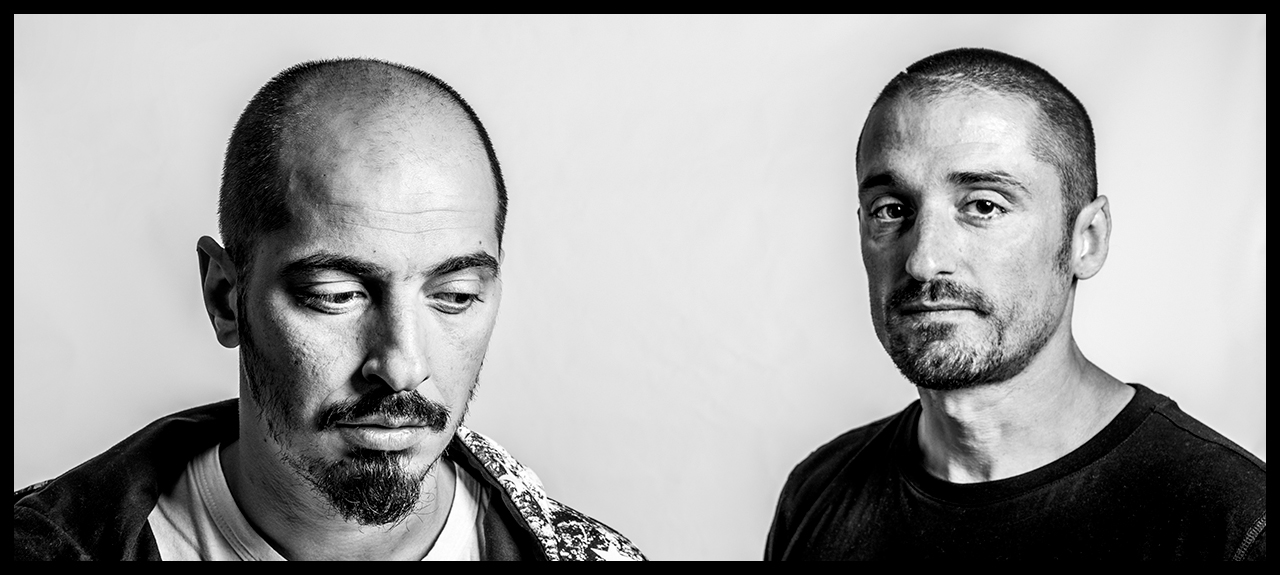
Childhood friends Ergen Berisha and Burim Kursani (Bim Bimma) would later go on to form the renowned hip-hop crew NR. Photo: Atdhe Mulla / K2.0.
Ground zero in the ’90s
Pici — real name Arian Rexhepi — and his friend Blerim Krasniqi had first fallen into contact with hip-hop in 1989, despite a complete lack of available information due to the circumstances in Kosovo at the time.
The two teenagers had access to the genre mainly through shows on MTV or VIVA, while they would use their radios to record the tracks of their favorite rappers so that they could listen to hip-hop whenever they wanted — which was often.
When they wanted a better quality of sound for some of their favorite album singles, they would order them at the video clubs that were operating at the time. Occasionally, they would also listen to hip-hop on the Serbian language TV channel Treći Kanal.
“In the beginning we wrote in English,” Pici says. “It was unimaginable to make this music in Albanian.”
In time, the two friends started to write their own lyrics and eventually formed their own crew, Gangs in da Hood.
“In the beginning we wrote in English,” Pici says. “It was unimaginable to make this music in Albanian.”
In 1990, the duo started to experiment with beats, which they took and modified for their own taste by raising or lowering their speed, and by taking one part of a track and repeating it throughout the whole song, or backwards; with the modified beats they started to rap with Albanian rhymes.
Other crews also sprung up around this time, with the Trouble Makers, Nice and Slow, New Enemy and Black Eagle all forming in the first couple of years of the ’90s.
But although Albanian language hip-hop was being made, music studios and producers were still oriented toward folk, pop and certain sub-genres of rock — genres that had dominated in society for decades.
“We were at ground zero,” says Pici as he recalls how they recorded songs.

Pici was one of Kosovo’s first hip-hop artists, starting off with his crew Gangs in da Hood before going solo. Photo: Atdhe Mulla / K2.0.
He says that there were a few other producers and musicians who knew about hip-hop and had the desire to make it, telling how they also worked with jazz musicians.
In addition to being faced with difficulties in producing music, the places where they could perform their music were also limited. They mainly performed in bars, and occasionally in cinema halls.
“The rock band was behind us and we were rapping,” recalls Pici as he describes their early performances in bars.
He goes on to mention the Prishtina-based festivals Boom ’92 and Boom ’93, where many rappers performed alongside artists from other genres. But before the first edition of the festival was held, the members of Gangs in da Hood separated.
Pici continued rapping as a solo artist, while Blerim formed the crew Colors. It was this crew that in 1994 would make the first music video for an Albanian language hip-hop song, “Kjo është jeta jonë” (This is Our Life), a song that had originally been penned by Gangs in da Hood.
The lyrics are about life in the ’90s, as the rappers talk about police stations, their wish to get visas, poverty and financial difficulties, and also included disses of other artists and lifestyles of the time. At one point they say “Kosovo belongs to Albanians,” a reaction to the increasing repression of the Serbian regime.
Sociologist Avni Rudaku suggests that hip-hop was a “cultural resistance against Slavic music, language and culture in general.”
By this time, the more mainstream music of Mc Beka was already reaching the masses.
After “the year of the music video,” hip-hop with Albanian rhymes began to be made by many crews such as Ritmi Rrugës, Boom Gang, BAM, Hija Jetës, Etno Engjujt, Tingulli 3 and 2po2.
Some of them would go on to dominate after the war, but many began to attract attention even earlier, with their music being played on local radio, and in cafés and bars, and also distributed through cassettes and included in “New Year’s tapes” — studio pre-recordings of New Year’s TV shows — which were very popular at the time.
Sociologist Avni Rudaku believes Albanian language hip-hop from the ’90s can be divided into two periods: “the genesis” in the first half of the decade, and the “period of increased public interest” in the second half.
The “genesis” he links very much to the parallel system in Kosovo, suggesting that hip-hop was a “cultural resistance against Slavic music, language and culture in general.” At this time, he says that it wasn’t seen as “genuine and cultivated art” but as “street art,” and as such was undervalued.
But the perception of hip-hop changed after it was popularized in Kosovo, Rudaku believes, with the increasing police oppression against Albanians, the use of satellites in households, the circulation of video cassettes, as well as youth emigration and their exposure to new music genres all influencing its dispersion.
Post-war gangsta rap — in Gheg
If the ’90s witnessed the birth and early growth of hip-hop in Kosovo, then the period immediately after the war at the turn of the millennium really saw its consolidation.
With the end of the war, many rappers headed to the studio. They didn’t only produce the tracks that they had started to make before the war, but formed crews, wrote and produced new ideas, and would eventually capture the music scene.
Their fame and hopes were helped by the much changed social circumstances: The repression had stopped, the opportunity for movement and access to information increased and many of those who emigrated returned. Meanwhile, technological advances also had an impact as music technology improved, and more people could access the music produced via the increased numbers of local radio and TV stations, and significantly — the internet.
Another radical change that contributed to the popularization of Albanian language hip-hop was that the upcoming scene developed a new identity.
The lyrics of Albanian hip-hop music in the ’90s — for example, those by Ritmi i Rrugës — had been written in standard Albanian language and was in many ways “softer” in approach than what was to follow.
The lyrics emphasized sex, luxury life, and irony or sarcasm “to everything and everybody.”
After the war, Kosovar hip-hop became dominated by the local Gheg dialect, which not only signalled a break from previous rappers, but also had an influence on Albanian language music more widely. The lyrics of post-2000 rappers were characterized by harsher approaches, whether in their approach to social phenomena or through the clashes between rival rappers, with threats and curses — or what is known as “gangsta rap.”
Beyond the social themes, the lyrics also emphasized sex, luxury life, and irony or sarcasm “to everything and everybody.”
Music by Tingulli 3, Etno Engjujt, Da L.I.G.S, WNC, 2po2 and Unikkatili began to enjoy a lot of success, as did Don Arbas, Dany Boy, Mc Mimo and Mc Chika.
But no crew represents the changing nature of hip-hop more in this period than NR.
Ergen and Bim Bimma’s crew had recorded their first track “Shumë vrasje” (Many Killings) in 1998 as the violence in Kosovo had intensified. But it was their 2003 album “Egjeli,” recorded with DJ Blunt and Real 1, that many hold up to be a “revolution in Albanian hip-hop.”
Recorded in Gheg and full of social commentary and irony, “Egjeli” is still held up today as being a seminal production for many emergent hip-hop artists.
NR was also capturing the imagination of live audiences. The year before “Egjeli” was released, in the “Show Fest” festival, whose lineup was dominated by pop singers, NR had participated with their song “Afrim Roboti” — even though they didn’t win first place in the competition, the song was voted as the public’s favorite and it continues to be one of the most popular songs in Albanian language hip-hop to this day.
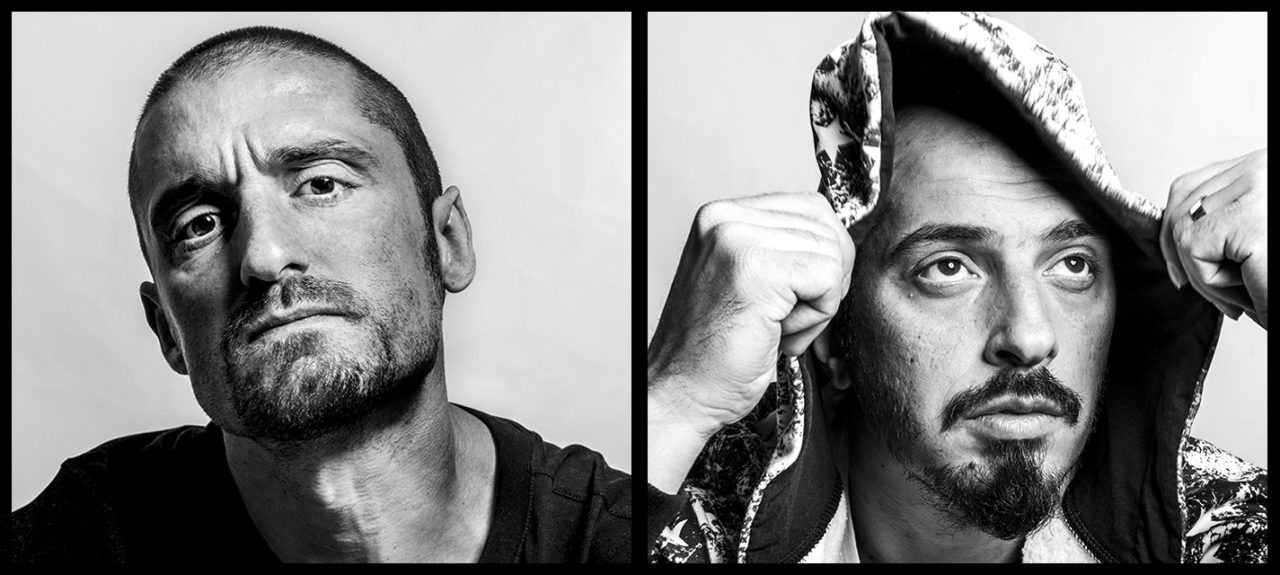
Ergen Berisha and Bim Bimma are two parts of the influential NR crew, which many say helped to herald a post-war “revolution in Albanian hip-hop.” Photos: Atdhe Mulla / K2.0.
Despite the success of many rappers, however, they still faced difficulties in composing music as there were still a limited number of people who knew how to produce hip-hop beats, and the tradition of borrowing beats from famous international rappers continued.
But that would change, as more and more music studios and musicians increasingly paid attention to hip-hop.
Concerts and festival lineups, for the first time, also began to see a proliferation of performances by rappers.
Bim Bimma particularly remembers the 2000 May 1 concert in front of Prishtina’s National Theater where NR and other crews like Da L.I.G.S rapped live, and the 2001 Crossing Bridge festival in Peja, where they and other rappers performed in front of thousands of people.
As the genre pushed itself more and more onto public consciousness, the traditional media in Kosovo was forced to pay attention.
Prior to these, in the immediate aftermath of the war in late 1999, a gig had been held in Prishtina’s “Boro-Ramiz” hall. Many of those who rapped that day would be the names who would go on to dominate Kosovo’s hip-hop scene for years to come.
One of the organizers — who also rapped that day — was Dany Boy.
Besides so many rappers performing live, Dany Boy particularly remembers the “security held by [NATO’s] KFOR,” since thousands of people were attending.
The hitmaker of the 2001 song “Fjala Hip-Hop” says that the “people’s need for something new” is what pushed forward and popularized hip-hop in this period immediately after the war.
As the genre pushed itself more and more onto public consciousness, the traditional media in Kosovo was forced to pay attention, and as it began to increasingly play hip-hop, the popularity only increased.
Dany Boy himself started one of the first radio shows that dealt exclusively with hip-hop, “Hip-Hop with Dany Boy,” which was launched in 2001. He emphasizes that he was motivated to start his show by the wish to play only hip-hop beats, and in particular those songs that may otherwise have been censored due to their explicit language.
Because while hip-hop was increasingly finding its way onto the airwaves, the media would generally refuse to play swear words or some of the more overtly sexist language.
Dissing, fighting and calling out the leeches
Just as the media continued to reject elements of hip-hop, some artists themselves rejected the media.
The rapper from Prishtina, Rebel aka Unikkatil — real name Viktor Palokaj — chose a special way to reach his audience. Toward the end of the ’90s, he had started recording in Prishtina, but shortly before the war started he emigrated to New York, where he still lives today.
When he started publishing his work at the beginning of the 2000s, he didn’t organize any concerts, he didn’t participate in TV programs and he didn’t give interviews. His music was shared mainly online; it was played in internet cafes and gaming clubs, or via CDs containing a compilation of his tracks and those of his crew, TBA (The Bloody Alboz).
Even though he was one of the most famous and spoken about hip-hop names in Kosovo, he remained a mysterious figure; most people — even those who ardently listened to his music — had no idea how he sounded outside of his songs or even what he looked like since for years there were only one or two published pictures of him.
Nevertheless, that his music was being listened to and Unikkatil was one of the most famous rappers in Kosovo was proved in 2012, when he held his very first concert in his home country, in the Stadium of Prishtina, and more than 20,000 people attended — this still marks one of the biggest crowds ever for a concert by an Albanian artist in Kosovo.
“Too many tried to return the diss to Unikkatil and gain fame, but they couldn’t lay a finger on him,”
Dany Boy, rapper
Besides his unique way of approaching the public, the novelty that Unikkatil brought to Albanian rap was the language in his texts, which are characterized by nationalistic tones, the inclusion of national figures and glorifying the Albanian identity. Above all though, they are continuously polemical and on the attack.
Unikkatil and his crew TBA would step up the idea of the diss in Kosovo; they started unambiguously using the full names of those they were calling out and they did so using the harshest language. Unikkatil seemed to have beef with everybody, from Ritmi i Rrugës, Tingulli 3, Noyzi and Duda to the cult diss against Prince Double H through the song “O Hysen,” which for many has become synonymous with “disses” in Albanian.
“Too many tried to return the diss to Unikkatil and gain fame [from it], but they couldn’t lay a finger on him,” says Dany Boy, who maintains that TBA, and especially Unikkatil, introduced or at least stepped up the culture of “fighting with words” in Kosovo.
Beyond TBA, NR also used disses from their first songs, attacking crews such as Ritmi i Rrugës and Hija e Jetës. Later, other rappers increasingly began to use disses as a form of expression.
More widely, the use of dissing and verbal attacks and swearing among rappers, has long been part of the genre; in the U.S., such conflicts between rappers has regularly escalated into physical violence and in some cases has ultimately ended in rappers killing each other. And just like other elements of hip-hop, this physical violence seen across the Atlantic has also found itself replicated in Kosovo.
Two rival crews from Gjilan, DG and E7, dissed each other for years and often ended up physically fighting and using guns on each other. More recently, the polemical battles between the Babastars (Prishtina) and OTR (Tirana) crews culminated in a shootout between the two rival crews in a swanky central Prishtina hotel that left various members needing medical treatment, including one rapper who had a bullet removed from his backside.
Despite all this, in the six or seven years after the war, hip-hop in Albanian was also characterized by the treatment of social topics; changes — or the need for change — in the way in which politics was functioning, disdain for the traditional culture, especially music culture, and attacks on corruption, poverty and the prevailing “mentality.”
“The music reflected everything that we were living… the air, the mentality or the thoughts, the corruption, politics and stuff like this.”
Bim Bimma, NR
NR, besides using swear words on rappers and singers, also dissed politicians, corruption, and “duplicity.”
In their hit song, “Afrim Roboti,” they dealt with what Ergen says “was common” throughout post-war Kosovo — “everybody trying to act like they’re tough”; they mocked the notion of being “the strongest in the neighborhood,” saying they considered it to be “the friend that brought the drug from Albania” and not those “with muscles and power.”
He recalls their spontaneous disses at the time with pride, saying: “Even if we had thought about them they wouldn’t have turned out any better… those were the things that we lived.”
Bim Bimma agrees that their music from that time reflected “everything that we were living… the air, the mentality or the thoughts, the corruption, politics and stuff like this.”
Even though more than a decade and a half have since passed, some of the topics that they tackled at that time can easily still be applied to today.
Both Ergen and Bim Bimma mention the song “1 001 111,” which they point out resonates with the contemporary emigration of Kosovars.
Some of the lyrics include: “1 001 111 people want to get on a rocket / To escape this real, miserable life / … If you keep playing / Very soon you’ll lose your position”; “I just want to die / I’m burning from the anxiety / Like all the others suffering from this life / I also need that rocket”; and “There’s no fucking place you can go / From the anxiety you have to shout / They have tied you to a rocket.”
They insist that, by replacing the key actors, these lyrics are still as relevant today as when they were written, whether it’s “1 001 111,” which states that “UNMIK has consumed all the budget” or the song “Raptishizëm,” which states that “UNMIK is draining the money as if it were a lizard catching a mosquito” — in recent years they often just replace the word “UNMIK” in the lyrics with “the government.”
“The foreigners are the biggest thieves together with our politicians who didn’t let this country progress, they are the only ones who have gotten rich,” says Bim Bimma, adding that “we were orchestrated by UNMIK and they have done things that don’t allow you to cherish the things that freedom brings.”
Hip-hop to the mainstream
During the middle of the first decade after the war, other names of rappers would begin to explode onto the scene and become an inseparable part of Albanian language hip-hop. Groups and rappers like Lyrical Son, Kaos, Skillz, Mc Kresha and others would start to make their names.
Other groups of rappers from Gjilan, Ferizaj and Peja started to join them. Hip-hop from Kosovo would even influence the music in Albania, Macedonia and the Albanian diaspora.
Hip-hop artists started to dominate Albanian language music. The music studios “were reserved” more and more for the rappers, their concerts became those most in demand, more singers from other genres were asking for collaboration with rappers and the TV studios and radios were full with rappers and their songs. In general, the rappers were controlling the music industry.
But the recent period is not necessarily one to be celebrated for those artists who have been around the scene for a while.
Taste 2, who has been rapping since the year 2000, thinks that the seven or eight years after the war was the period that produced the greatest Albanian rap, when contemporaries were particularly focused on highlighting and protesting against social problems in an authentic way.
Known for the sarcasm in his songs, Taste 2 says that over the past decade or so Albanian language hip-hop changed when the majority of rappers “started to sing for money, for this and that, or started to copy.”
He calls this change “ego-trips” and says that it came either from the complacency of some rappers or their fear that “people are reluctant to hear about problems or to lyrics with three verses.”
As a result, he says, rappers have lost the tendency to be “authentic” as the majority of them no longer care about “protesting with hip-hop,” as had been a key element in the genre’s roots.
The rapper who debuted with the 2001 track “VO” — which talks of eating only eggs, at a time when many rappers were boasting about how much money they had — says that Albanian hip-hop was unable to create its own identity and instead “remained a copy, inspired mainly by American hip-hop.”
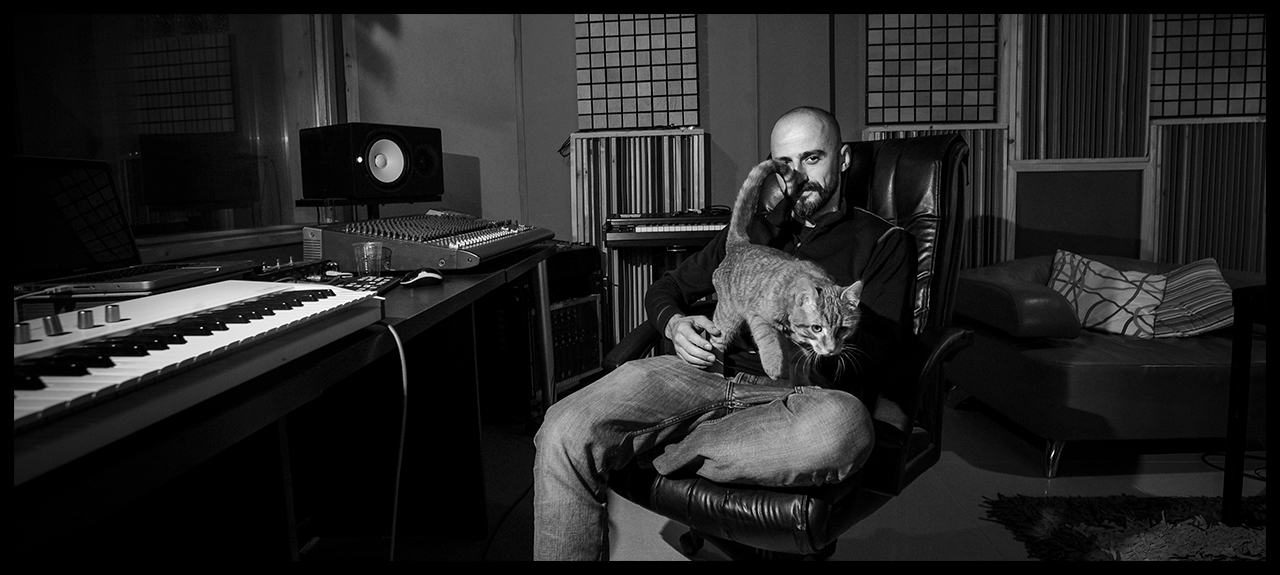
Taste 2 believes that many of today’s rappers are simply on ego-trips and that hip-hop in Kosovo has lost some of its authenticity. Photo: Atdhe Mulla / K2.0.
Ergen also agrees that Albanian language hip-hop has somewhat lost its way in recent years. “My dream is to change this celebrity culture; to create a [real] hip-hop industry in Kosovo,” he says.
For the rapper Elinel, who has been recording music “against those who are privileged” since he was a teenager more than a decade ago, the majority of today’s Albanian language hip-hop is limited to clichés that keep on repeating.
There are a number of factors that have impacted this, he feels. “The club is an orchestrator of all the music that is produced today,” Elinel says.
He also particularly emphasizes YouTube and the competition for “views,” which he says has made a significant proportion of rappers try to make their music sellable and commercial; “lyrics are written for the rhyme” ignoring or not giving importance to “the story in a song.” This, he believes, has removed the emotion from the music as “music is censored and beautified for the masses” rather than being a “therapy for the artist.”
When Elinel hears the words rapped by many of today’s hip-hop artists, he says he often feels like asking them: “Do you know what you’re saying?”
Besides this, Elinel believes that there has been another stereotype that has perpetuated: “To be a rapper, you need to stay on the streets, to be a gangster or you need to unquestionably be the protagonist.” This is a reflection of rappers attempting to emulate, “the trends from far away,” he thinks, but ultimately it means that many of Kosovo’s hip-hop artists “are lying to themselves.”
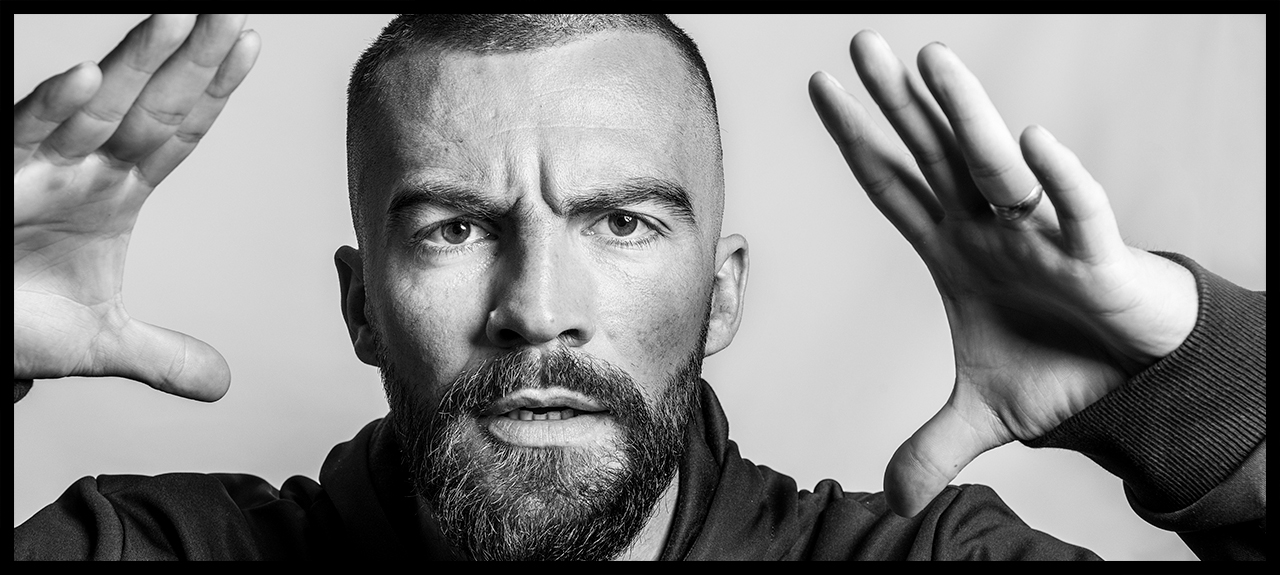
Elinel, who has been rapping since he was a teenager, says he often feels like asking today’s hip-hop artists: “Do you know what you’re saying?” Photo: Atdhe Mulla / K2.0.
In the last few years though, new names — and a new generation of rappers — have begun to emerge and climb their way up the Albanian hip-hop scene.
Among the best-known is Buta, who is perhaps the first rapper in Kosovo to use the distinctive trap style. His lyrics are known for his harsh and explicit words but he is also distinguished by his slim-fitting fashion as well as his style of making video clips with washed out colors.
Alternative spaces are also organizing open-mic rap battles, which give the chance for emerging hip-hop artists to perform in front of energetic crowds; two have been organized in the last three months alone by Prishtina’s communal space, Termokiss.
Although it’s a scene still dominated by men, a recent winner was 25-year-old Rreze Osmani, whose success evokes a time when Mc Chika or Mc Mimon — and before them Blerta Zeqiri — were making waves in Albanian language Hip-Hop.
The new generation is an indication though that Albanian language hip-hop is entering a new phase. For the past 30 years since its very first days, the scene has seen new names, approaches and styles, which have left an enduring mark not only on music, but on a way of life. And now, the evolution looks set to continue.K
Feature image shows NR (Left to right: Real One, Bim Bimma, Dj Blunt and Ergen Berisha) during the photoshoot for their first album “Egjeli” in 2003. Photo: Atdhe Mulla.
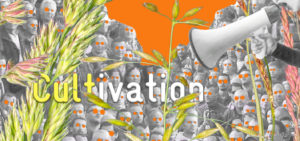
Back to the monograph








love this artical, im albanian (from kosovo) and i absoloutley love hip hop and im glad hip hop exsisted in kosovo.